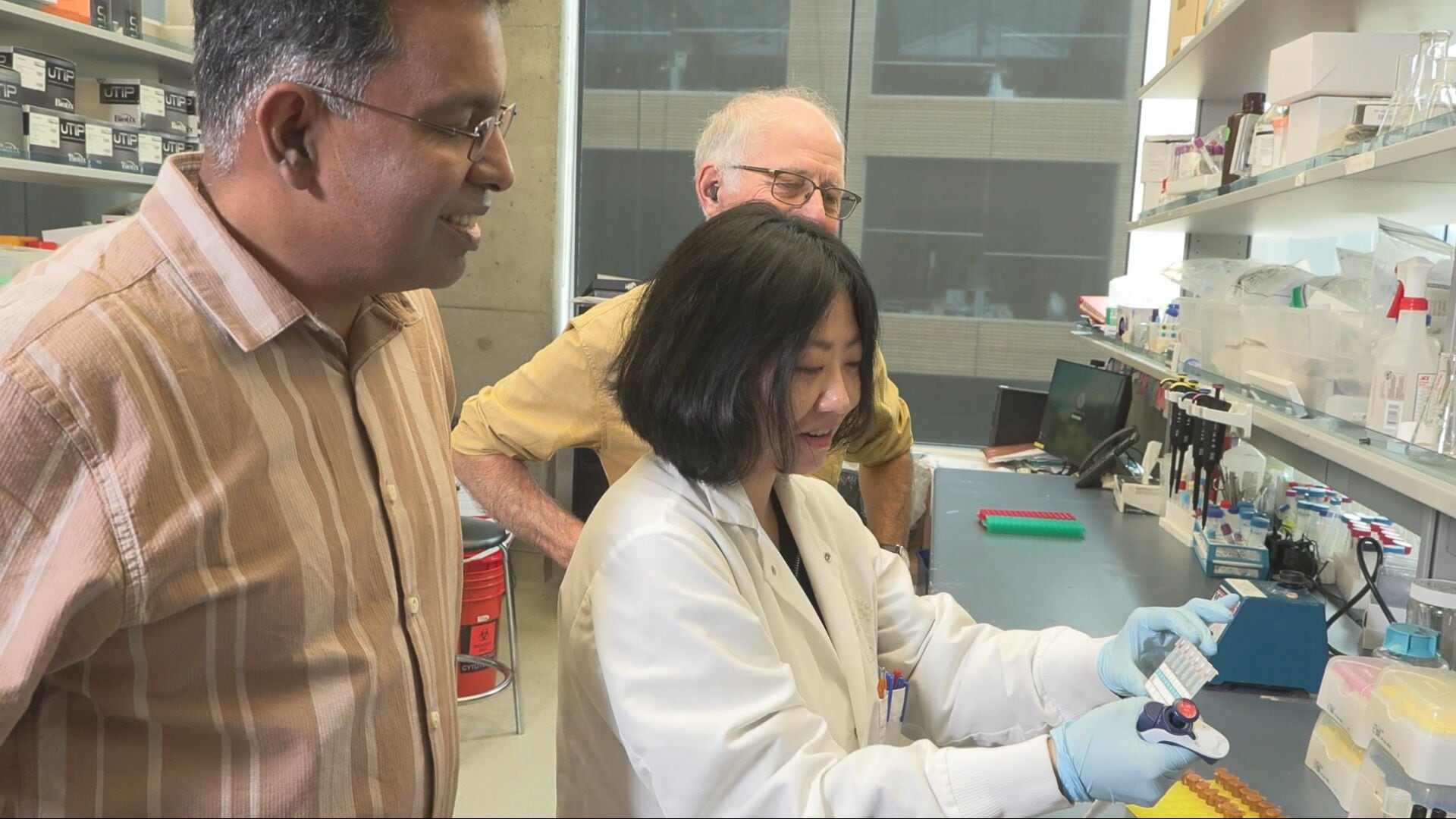Science
UBC Breakthrough Enzyme Technology Completes First Human Trial

A significant breakthrough in medical science has emerged from the University of British Columbia (UBC), as researchers have successfully completed the first human trial of an innovative enzyme technology aimed at facilitating universal organ transplants. This advancement has the potential to transform the lives of thousands of transplant patients across North America.
The clinical trial, which began earlier this year, focused on the enzyme’s ability to reduce the risk of organ rejection during transplants. Traditional methods often face challenges due to compatibility issues between donors and recipients. The enzyme technology developed at UBC addresses these concerns by modifying the organ in such a way that it becomes compatible with a wider range of recipients.
Trial Results and Implications
According to the research team, the trial results have been encouraging. The enzyme demonstrated a remarkable ability to improve organ acceptance rates, providing hope for patients who have struggled with transplant eligibility due to incompatible blood types or other factors. Dr. Sarah Thompson, a leading researcher in the project, stated, “This technology could significantly reduce the waiting time for organ transplants, thereby saving countless lives.”
As of October 2023, the team reported that the initial phase of the trial involved 50 participants, all of whom received organs treated with the enzyme. The results indicated a higher than expected rate of successful transplants without major rejections occurring within the follow-up period.
The implications of this research extend beyond individual patients. Healthcare systems burdened by long waiting lists for organ transplants could benefit from increased availability of suitable organs, potentially leading to a decrease in mortality rates associated with organ failure.
Next Steps and Future Research
Following the successful completion of this trial, UBC researchers plan to expand their studies to include a larger and more diverse population. This next phase aims to evaluate the long-term effectiveness of the enzyme technology and its impact on various types of organ transplants, including hearts, kidneys, and livers.
The research has garnered attention not only for its scientific breakthroughs but also for its ethical implications. As organ transplant technology progresses, discussions surrounding consent, donor eligibility, and equitable access to these advancements will become increasingly vital.
The UBC team is collaborating with leading hospitals across Canada and the United States to ensure that their findings reach the broader medical community. By sharing their insights and data, they hope to pave the way for a new era in organ transplantation that is more inclusive and effective.
This groundbreaking achievement exemplifies the potential of scientific research to address pressing healthcare challenges. As further trials unfold, the hope remains that this enzyme technology will become a standard practice in organ transplantation, ultimately providing a lifeline to many who are currently waiting for their chance at a new lease on life.
-

 Lifestyle1 month ago
Lifestyle1 month agoWinnipeg Celebrates Culinary Creativity During Le Burger Week 2025
-

 Health2 months ago
Health2 months agoMontreal’s Groupe Marcelle Leads Canadian Cosmetic Industry Growth
-

 Science2 months ago
Science2 months agoMicrosoft Confirms U.S. Law Overrules Canadian Data Sovereignty
-

 Education2 months ago
Education2 months agoRed River College Launches New Programs to Address Industry Needs
-

 Technology2 months ago
Technology2 months agoDragon Ball: Sparking! Zero Launching on Switch and Switch 2 This November
-

 Science2 months ago
Science2 months agoTech Innovator Amandipp Singh Transforms Hiring for Disabled
-

 Technology2 months ago
Technology2 months agoGoogle Pixel 10 Pro Fold Specs Unveiled Ahead of Launch
-

 Science2 months ago
Science2 months agoChina’s Wukong Spacesuit Sets New Standard for AI in Space
-

 Technology2 months ago
Technology2 months agoWorld of Warcraft Players Buzz Over 19-Quest Bee Challenge
-

 Science2 months ago
Science2 months agoXi Labs Innovates with New AI Operating System Set for 2025 Launch
-

 Business2 months ago
Business2 months agoDawson City Residents Rally Around Buy Canadian Movement
-

 Business2 months ago
Business2 months agoNew Estimates Reveal ChatGPT-5 Energy Use Could Soar
-

 Technology2 months ago
Technology2 months agoInnovative 140W GaN Travel Adapter Combines Power and Convenience
-

 Technology2 months ago
Technology2 months agoFuture Entertainment Launches DDoD with Gameplay Trailer Showcase
-

 Technology2 months ago
Technology2 months agoGlobal Launch of Ragnarok M: Classic Set for September 3, 2025
-

 Education2 months ago
Education2 months agoAlberta Teachers’ Strike: Potential Impacts on Students and Families
-

 Technology2 months ago
Technology2 months agoNew IDR01 Smart Ring Offers Advanced Sports Tracking for $169
-

 Technology2 months ago
Technology2 months agoArsanesia Unveils Smith’s Chronicles with Steam Page and Trailer
-

 Technology2 months ago
Technology2 months agoHumanoid Robots Compete in Hilarious Debut Games in Beijing
-

 Science2 months ago
Science2 months agoNew Precision Approach to Treating Depression Tailors Care to Patients
-

 Health2 months ago
Health2 months agoGiant Boba and Unique Treats Take Center Stage at Ottawa’s Newest Bubble Tea Shop
-

 Technology2 months ago
Technology2 months agoQuoted Tech Launches Back-to-School Discounts on PCs
-

 Business2 months ago
Business2 months agoBNA Brewing to Open New Bowling Alley in Downtown Penticton
-

 Technology2 months ago
Technology2 months agoDiscover the Relaxing Charm of Tiny Bookshop: A Cozy Gaming Escape










